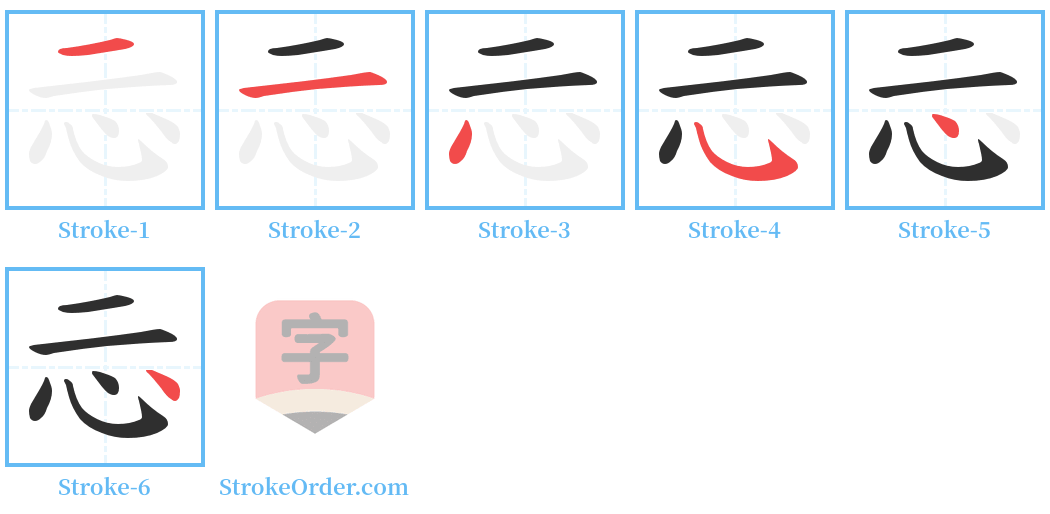忈 Stroke Order
Animated Stroke Order of 忈

Stroke Order Diagrams for 忈

Information of 忈
Pinyin
rén
Radical
心
Strokes
6 strokes
Usage
★★
Definition
忈:
1. Anciently the same as "仁", meaning benevolence; affection.
古同“仁”,仁爱;亲。
2. Benevolence; mutual affection. "仁" is an ancient moral concept that encompasses a wide range of meanings, primarily referring to the mutual love between people.
仁爱;相亲。仁是古代一种含义极广的道德观念。其核心指人与人相互亲爱。
3. Generally refers to benevolence. In "孟子·梁惠王下", it states, “The people of Bin said: ‘The benevolent person cannot be lost. Those who follow him gather as if returning to a market.’”
泛指仁德。《孟子·梁惠王下》:“邠人曰:‘仁人也,不可失也。’从之者如归市。”
4. A term for those with virtue, referring to benevolent people. In "论语·学仁", it states, “Extending love to the multitude while being close to the benevolent.”
有德者之称。指仁人。《论语·学仁》:“泛爱众,而亲仁。”
5. A title for the virtuous. Refers to entities that benefit all beings, commonly associated with the Five Elements in ancient times, also referred to as "仁". In "礼记·乡饮酒义", it mentions, “To nourish, to nurture, to give, this is benevolence.”
有德者之称。指事物中有恩于万物长育者,古代常与五行等相配,亦称之为“仁”。
6. The soft edible part inside the kernel or shell of a fruit. In "太平御览" vol. 965, it quotes "Liu Gen's Biography": “One can consume twenty-seven kernels from the date seeds.”
果核或果壳最里头的部分,大都质软可食。《太平御览》卷九六五引《刘根别传》:“可服枣核中仁二十七枚。”